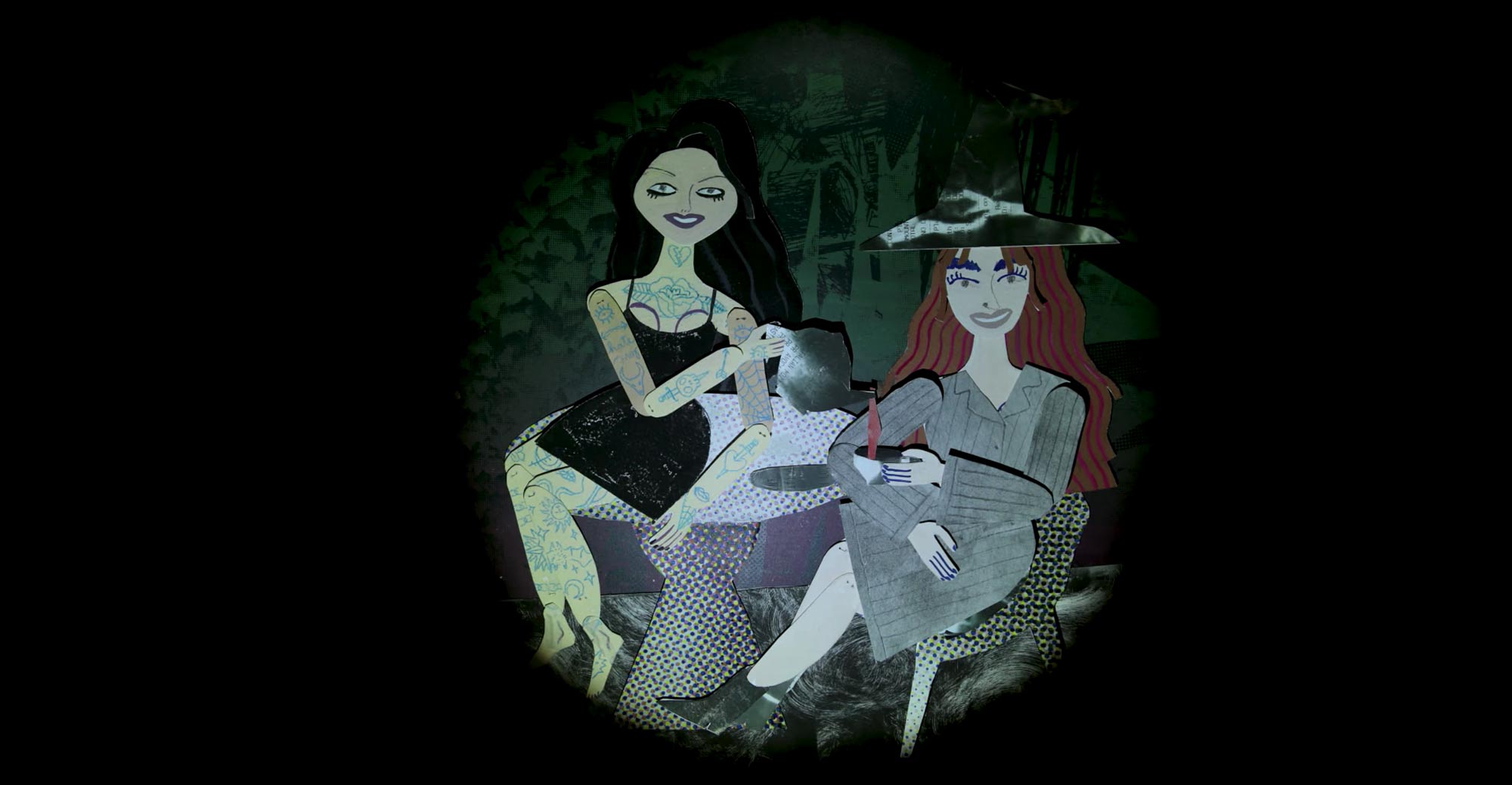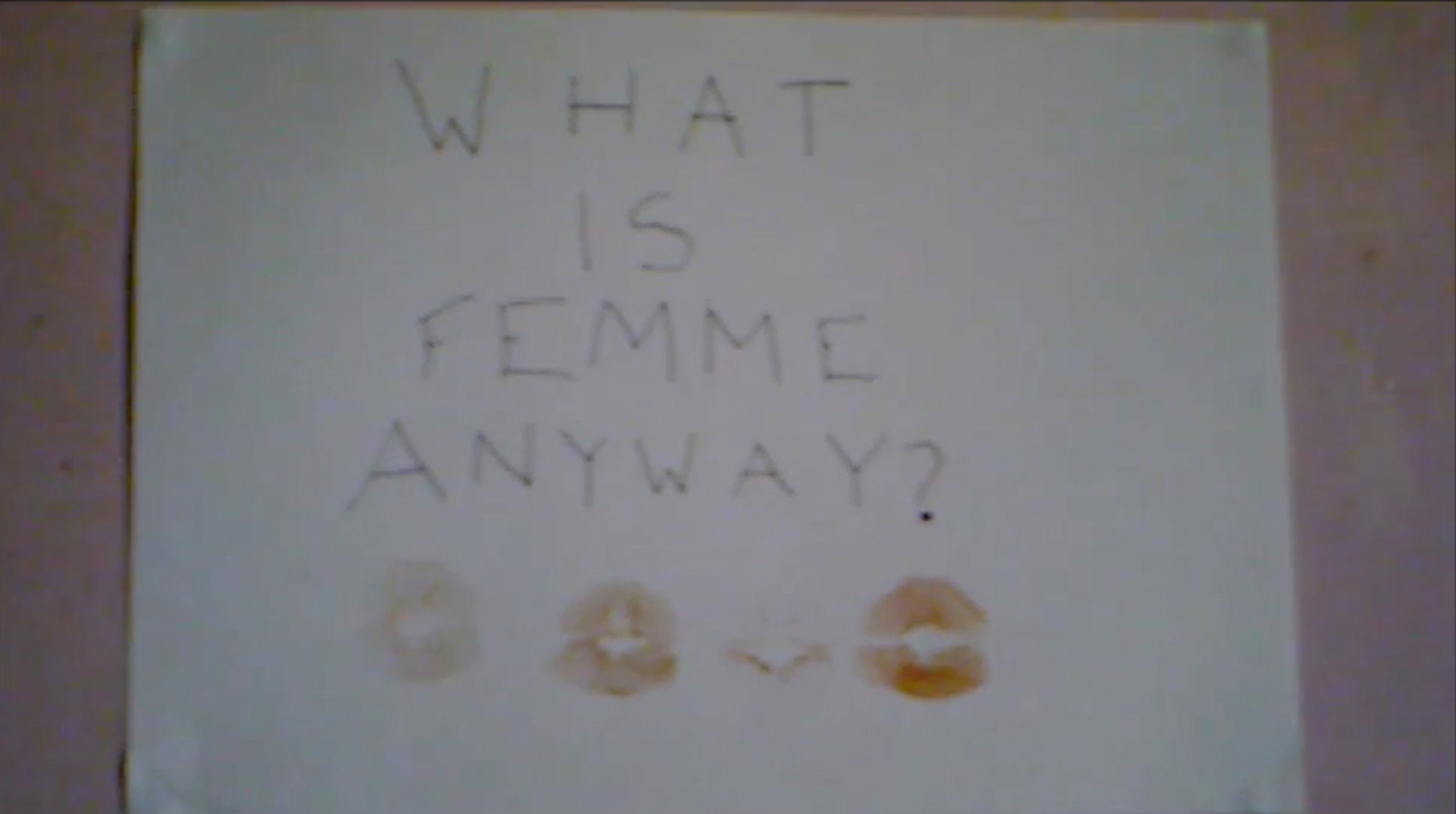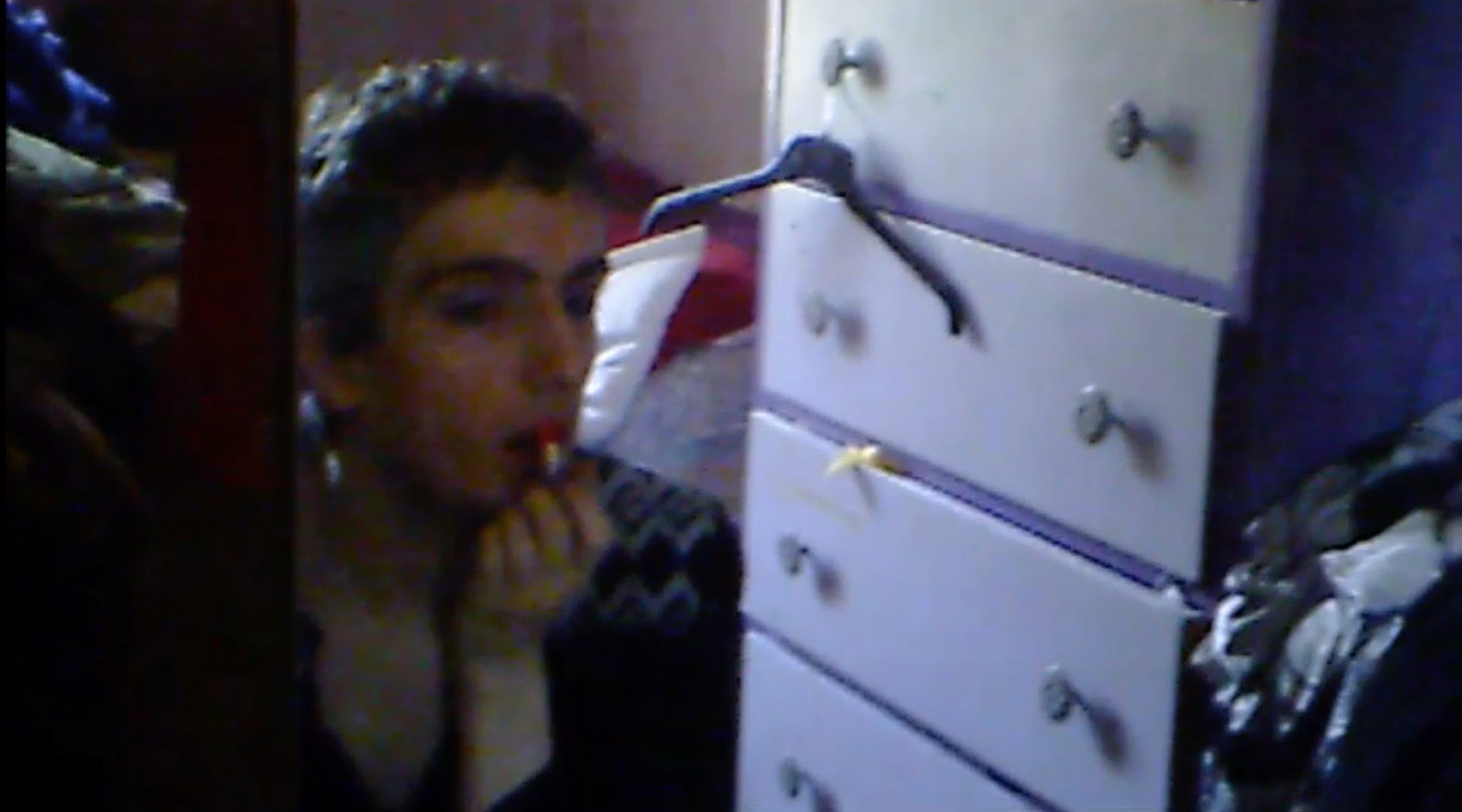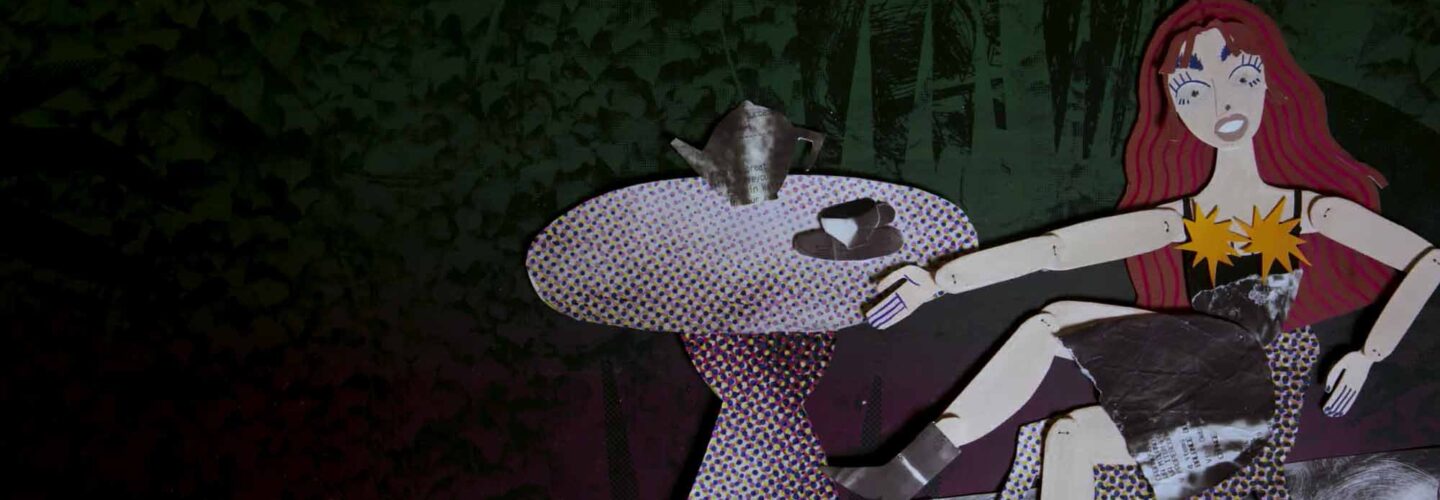
Director Matthew Kennedy is an LGBTQ+ learning disabled artist and filmmaker from Glasgow. Matthew uses film to explore his identity and sexuality creating poignant and unusual art. Having recently found his voice as a spokesperson for the LGBTQ+ learning disabled community, Matthew is sharing and exposing the therapeutic art form and paving the way for LGBTQ+ learning disabled filmmakers. I spoke to Matthew about his journey into filmmaking and how we can support this growing community.

What inspired you to become a filmmaker?
I got involved in an LGBTQ+ group art exhibition in late 2013 where I made a collage which would be a stand-alone piece, I then made a short film which was used as an installation to go with it. This, in turn, made me think that filmmaking could be my new favourite medium to make art.
Also watching short films by Vivienne Dick really inspired me to become a filmmaker, she’s an Irish experimental filmmaker and her work is amazing. Watching her films made me realise, “Well if she can do it so can I!”
What attracts you to stop motion?
I was drawn to stop motion because it’s a slightly different filming and viewing experience to live action. I first came across stop motion whilst making my third short film Versions in 2015 with the help of Project Ability, it was also the first time I had music accompany a film by the brilliant musician Teaadora whose music I’ve admired for years. I had the inspiration for the film from an old collage I made which is a silhouette of myself in sections covered in various patterns, I think it’s great that you can turn something that was once a still image into a moving image like you’re evolving from one medium to another.
I’ve come back to stop motion once again with my recent short film Enid & Valerie. This film is about a Spinster (Valerie) and a Witch (Enid) and is set within a dream Valerie is having where she meets Enid and strange things occur. I got the opportunity to go down to London earlier in the year to work on a commission in collaboration with Carousel and Canvas, I collaborated with Animator Vitoria Bastos on the film, seeing her work behind the scenes to bring a part of my script to life was brilliant. Vitoria showed me some of the design techniques that she used to create the characters, plus we chatted about our influences and our work. I hope I get the chance to collaborate with her again sometime in the future, her work is awesome!
I think it’s great that you can turn something that was once a still image into a moving image like you’re evolving from one medium to another.
Your films tenderly explore and pose questions around identity, has filmmaking helped you to better understand yourself?
I’m going to give two answers to this question: I don’t think it did, to begin with, I already had an understanding of myself before I got into filmmaking. I had been exploring my own queer identity when I was a teenager, also during my last year of college, I was questioning other things like femme identity, gender fluidity, etc.
When I left college I was having a difficult time trying to navigate and articulate my own gender expression. I think this is where the filmmaking aspect comes in, the feeling of personal isolation with talking and questioning myself over and over again wasn’t helping. That’s when I decided to hell with it I need to document my own personal questionings of expression and identity through film.
Also making a film around me being queer and learning disabled was really important to document. There’s very little documentation when it comes LGBTQ+ learning disability representation in film in terms of research. This frustrated me. I felt like I had to take what I was feeling into my own hands, that I had the power to put myself in the frame and to be unashamed about what I was saying. I think filmmaking helped me better understand myself.
What Is Femme Anyway was the first film I ever made and I still have a soft spot for it. I don’t know what drove me to make the decision, I just felt like it was a subject that needed to be talked about. That it was important for me to talk about what Femme identity means to me as a queer person. To be able to question things without fear or shame. I never really had any reservations over sharing it with the world, although when I first had the idea for the film I was slightly nervous I got over it though.
I had the power to put myself in the frame and to be unashamed about what I was saying. I think filmmaking helped me better understand myself.
Also having the opportunity to have the film screened as part of a Fabulous Femmes event by the amazing Scottish Queer International Film Festival was brilliant! As part of the event, I got to be in conversation with feminist performance artist Bird La Bird with Leanne Dawson moderating the discussion. This was the first time I had ever been in discussion with other femmes and it was inspiring!

Tell us about your journey to becoming a spokesperson for the LGBTQ+ learning disabled filmmaking community.
I suppose my journey began with myself, that I didn’t see myself or somebody like me being reflected back at me. This angered me to the point where I thought, “Enough is enough time to take things into my own hands.” I got a Toys ‘R’ Us kids’ camcorder for £21 which I used to make my first two short films, with the assistance of my twin brother Andrew as the cameraman. Having a DIY approach to filmmaking along with the support of my family gave way to something that I felt needed to happen, that I simply wasn’t going to ask or wait for permission to create films. That spaces of creativity and culture need to include LGBTQ+ learning disabled filmmakers and artists, that we exist and I’m not going to keep quiet about it anytime soon!
Some of my favourite film festivals have had a huge part to play as well such as Scottish Queer International Festival, Wotever DIY Film Festival and Oska Bright Film Festival. These film festivals have given me a lot of support as a filmmaker, they’ve been so enthusiastic to screen my films and have given me a platform to discuss being a queer learning disabled filmmaker.
I also have to credit my dear friend and fellow filmmaker Matthew Hellett. I met Matthew at Oska Bright in 2015 which was my first time at the festival, it was also the first time I ever met another LGBTQ+ learning disabled filmmaker, which for me was a rare moment, in a sense I have to thank Oska Bright for putting us in contact with each other. Ever since that first visit Matthew and I have screened our films and talked at events in Brighton, Glasgow and Bristol, the events were under the name of ‘Matthew & Matthew’.
I simply wasn’t going to ask or wait for permission to create films.
These events have helped open up a dialogue between Matthew and myself on being queer learning disabled filmmakers in the filmmaking community. Doing these events with Matthew has been such an important and valuable experience, it’s also made me realise that what we’ve created is a reality, that we’ve created our own little piece of culture that deserves to be visible. I honestly can’t wait to see what Matthew does next, he’s definitely played a massive part in not just me but us becoming even more vocal in the LGBT learning disability filmmaking community.
Last year was pretty significant for me, Oska Bright gave me the opportunity to open their festival by giving a keynote speech which was an absolute honour and privilege. Not only that, I was given the ‘Outstanding Contribution to Cinema’ award at the festival ceremony on the last night. To know that my work is being appreciated and recognised by a film festival that champions learning disabled filmmakers is indescribable.


What message would you like our audience to take away with them and how can people support LGBTQ+ learning disabled filmmakers?
Support learning disabled filmmakers/artists, by acknowledging our work and that it deserves to be respected and included. This also should include supporting LGBTQ+ and learning disabled arts organisations.
Here are a few things people can do:
Oska Bright introduced a new LGBTQ+ strand at their festival in 2017 titled ‘Queer Freedom’ which had films made by or featuring LGBTQ+ learning disabled people, it was fantastic! They’ve now made the strand available to hire for screenings which are great, so if any film/arts organisations or festivals want to get in touch visit their website!
Also Oska Bright is currently accepting submissions for next year’s festival, they’re particularly interested to include films made by or featuring LGBTQ+ learning disabled people. I’m personally really excited about this as Oska Bright have been really supportive around LGBTQ+ representation within their festival, so get sending your films to them! Submissions deadline is March 30th 2019.
What’s next?
I’ll probably be submitting Enid & Valerie to various film festivals, I’m also hoping to do some more writing once the creative juices get flowing again. But personally speaking, I’m also looking forward to seeing what’s next!


